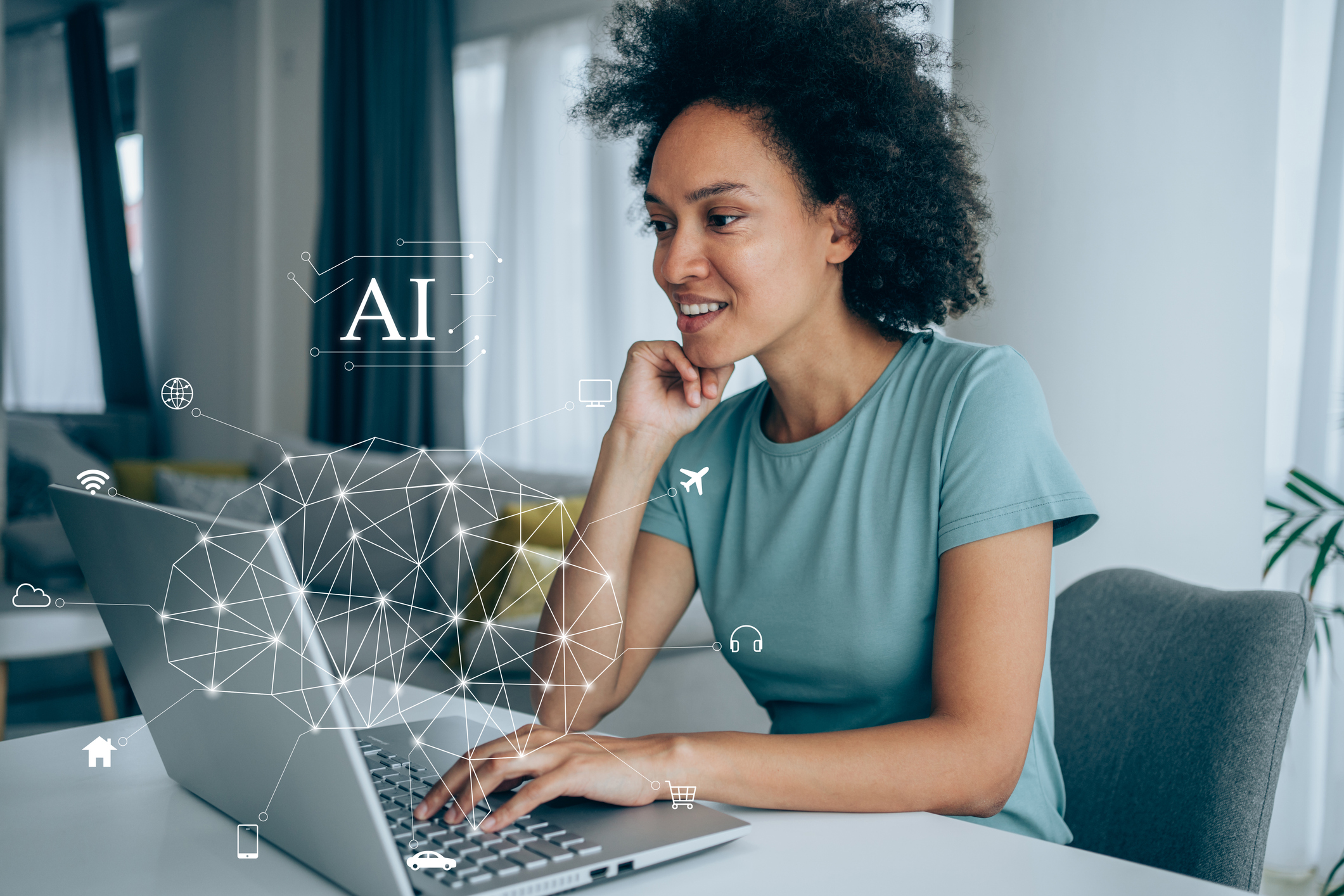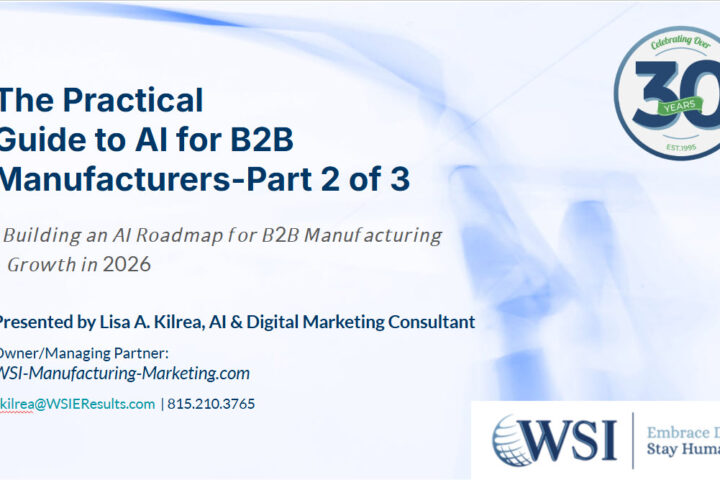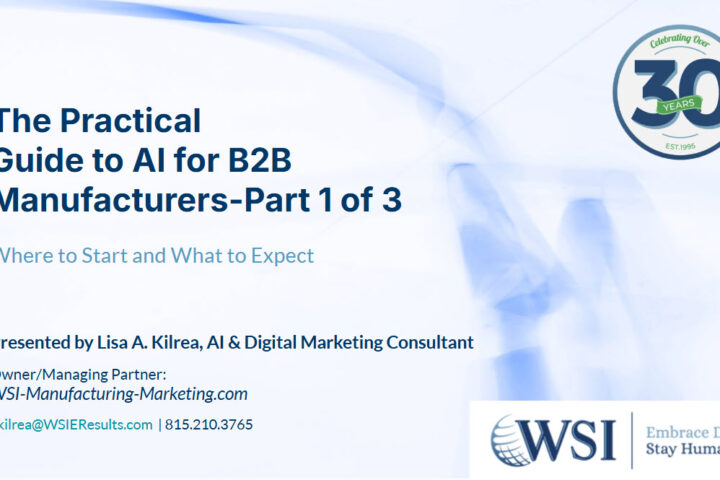Search Engine Optimization and AI
Part 4: The Future of AI Overviews and SEO
Artificial intelligence (AI) advancements are ushering in a significant transformation within the digital marketing landscape. As AI technology continues to advance, it is redefining search engine optimization (SEO) in ways that were once beyond imagination. For businesses—especially those in the manufacturing sector—grasping the future landscape of AI and SEO is vital for staying ahead of the competition and maximizing the benefits of these technological breakthroughs. This blog post examines emerging trends in AI and SEO, offering insights into how companies can adapt and flourish.
The Rise of AI in Search Engines
AI has already made substantial inroads into search engine algorithms, fundamentally altering how search results are generated and presented. Google’s AI algorithms, such as RankBrain and BERT, are designed to better understand user intent and deliver more relevant search results. These advancements are just the beginning, as AI’s role in SEO is set to become even more profound.
In the future, AI will continue to enhance the accuracy and relevance of search results by leveraging machine learning, natural language processing (NLP), and deep learning. These technologies enable search engines to understand the nuances of human language, interpret complex queries, and provide highly personalized search experiences.
Hyper-Personalization of Search Results
One of the most significant trends in the future of AI overviews and SEO is hyper-personalization. AI algorithms will increasingly tailor search results to individual users based on their behavior, preferences, and search history. This level of personalization goes beyond current capabilities, offering users a more intuitive and satisfying search experience.
For businesses, this means that understanding and anticipating customer needs will become even more critical. SEO strategies will need to focus on creating personalized content that resonates with specific audience segments. By leveraging AI-driven insights, businesses can develop content that addresses the unique interests and pain points of their target customers, thereby improving engagement and conversion rates.
Enhanced User Experience (UX)
As AI continues to evolve, its impact on user experience (UX) will become more pronounced. Search engines will place greater emphasis on websites that offer seamless, high-quality user experiences. Factors such as page load speed, mobile-friendliness, and intuitive navigation will become even more critical in determining search rankings.
Future SEO strategies will need to prioritize UX optimization, ensuring that websites are designed with the user in mind. This includes implementing responsive design principles, optimizing images and multimedia, and ensuring that content is easily accessible on all devices. AI-powered tools can help businesses analyze UX metrics and identify areas for improvement, enabling them to create more engaging and user-friendly websites.
Voice Search and Conversational AI
The rise of voice search is another significant trend shaping the future of AI overviews and SEO. As more users rely on virtual assistants like Siri, Alexa, and Google Assistant for their search queries, optimizing for voice search will become increasingly important. Voice searches tend to be longer and more conversational, requiring businesses to adapt their SEO strategies accordingly.
Conversational AI will play a crucial role in this shift. AI-powered chatbots and virtual assistants will become more sophisticated, capable of understanding and responding to complex user queries in natural language. Businesses will need to optimize their content for voice search by incorporating long-tail keywords and natural language phrases. Additionally, providing concise, accurate answers to common questions can help businesses capture voice search traffic and improve their search rankings.
Predictive and Proactive Search
The future of AI overviews and SEO will also see a shift towards predictive and proactive search capabilities. AI algorithms will not only respond to user queries but also anticipate their needs and provide relevant information proactively. This shift will be driven by advancements in data analytics and machine learning, enabling search engines to predict user intent with greater accuracy.
For businesses, this means that staying ahead of search trends and user behavior will be essential. SEO strategies will need to incorporate predictive analytics to identify emerging search trends and adjust content accordingly. By anticipating what users are likely to search for, businesses can create content that meets their needs before they even realize it, gaining a competitive edge in the digital marketplace.
The Integration of AI and Human Expertise
While AI will play a more significant role in SEO, human expertise will remain invaluable. The future of AI overviews and SEO will involve a harmonious integration of AI-driven insights and human creativity. AI can analyze vast amounts of data and provide actionable insights, but human marketers will still be needed to craft compelling narratives, develop innovative strategies, and build meaningful connections with customers. Learn more about using AI for digital marketing to drive manufacturing growth.
AI Digital Marketing Solutions
The future of AI overviews and SEO is bright, promising a more personalized, intuitive, and efficient search experience for users. For businesses, particularly those in the manufacturing sector, adapting to these trends will be essential for staying competitive in the digital age. By embracing AI-driven technologies and integrating them with human expertise, businesses can optimize their SEO strategies, enhance user experiences, and drive growth in an increasingly AI-dominated landscape. Staying informed about these advancements and being proactive in implementing new strategies will be key to leveraging the full potential of AI and SEO in the future.




